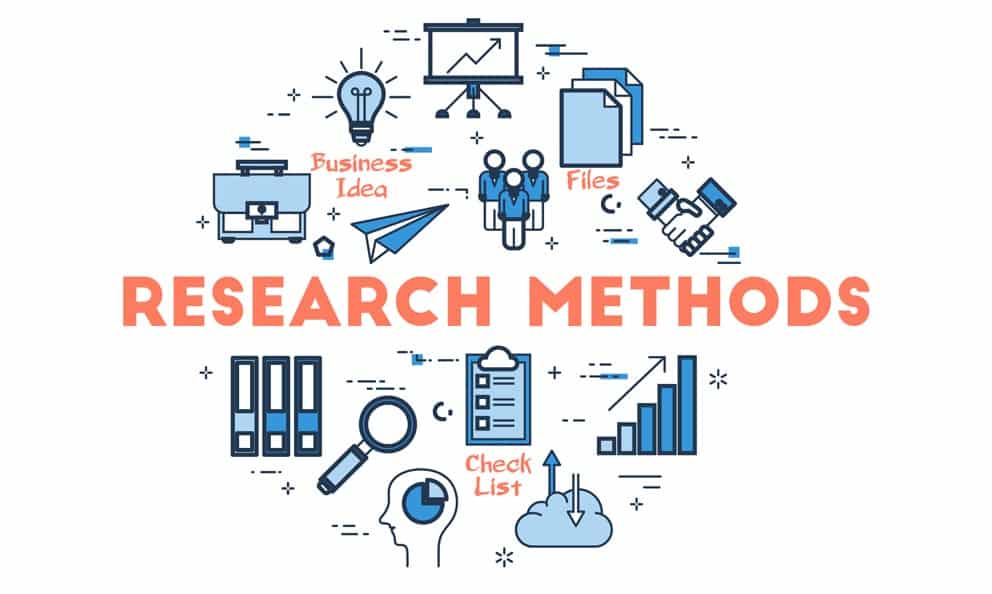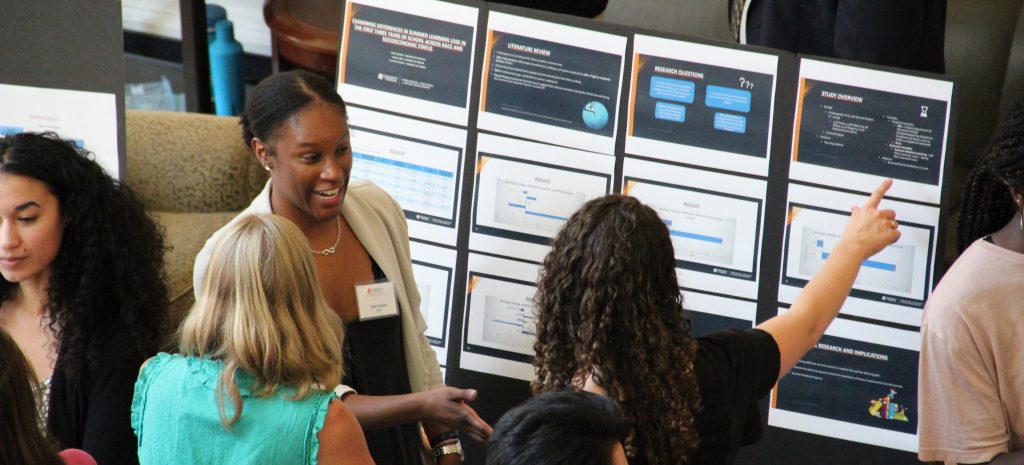JAKARTA, studyinca.ac.id – In the academic journey, mastering research methods is essential for students to navigate the complexities of information gathering, analysis, and synthesis. Many students face confusion when confronted with the vast array of information available today, often struggling to discern credible sources from unreliable ones. This article explores the significance of research methods in building academic skills, provides effective strategies for implementation, and highlights how these methods can turn confusion into winning habits that lead to academic success.
The Importance of Research Methods in Academic Development

Enhancing Critical Thinking Skills
Research methods are crucial for developing critical thinking skills. By learning how to analyze and evaluate information, students become more discerning consumers of knowledge. This skill is vital not only in academic settings but also in everyday decision-making.
Active Engagement with Information
When students engage with research methods, they actively participate in the learning process. This engagement encourages them to question assumptions, assess evidence, and draw informed conclusions, fostering a deeper understanding of the subject matter.
Improving Information Literacy
In an age where information is abundant, information literacy has become a necessary skill for academic success. Research methods teach students how to effectively locate, evaluate, and utilize information from various sources.
Navigating Information Overload
Students often feel overwhelmed by the sheer volume of information available. Learning research methods equips them with the skills to filter through this noise, identifying relevant and credible sources that contribute to their academic work.
Fostering Independence and Confidence
Mastering research methods empowers students to take ownership of their learning. As they become more proficient in conducting research, they gain confidence in their ability to tackle academic challenges independently.
Building Self-Efficacy
When students successfully apply research methods to complete projects or assignments, they experience a sense of accomplishment. This boost in self-efficacy encourages them to take on more complex tasks and challenges in the future.
Encouraging Effective Communication
Research is not just about gathering information; it also involves communicating findings effectively. Research methods teach students how to present their ideas clearly and persuasively, whether through written reports, presentations, or discussions.
Developing Presentation Skills
Students learn to articulate their research findings coherently, which enhances their overall communication skills. This ability is crucial for academic success and future professional endeavors.
Effective Strategies for Teaching Research Methods
Integrating Research Across the Curriculum
To reinforce the importance of research methods, educators should integrate research activities across various subjects. This interdisciplinary approach helps students see the relevance of research in different contexts.
Action Steps
- Collaborate with colleagues from different departments to design integrated projects.
- Encourage students to apply research methods in diverse subjects, such as science, history, and literature.
Providing Structured Guidance
Many students struggle with research methods due to a lack of guidance. Educators should provide structured support to help students navigate the research process effectively.
Action Steps
- Offer step-by-step instructions for conducting research, including topic selection, source evaluation, and citation practices.
- Create resources, such as guides or worksheets, that outline the research process clearly.
Utilizing Technology and Online Resources
Incorporating technology into research instruction can enhance students’ learning experiences. Online databases, digital libraries, and research tools provide valuable resources for students to explore.
Action Steps
- Introduce students to reputable online databases and search engines tailored for academic research.
- Teach students how to use citation management software to organize their sources and streamline the writing process.
Encouraging Collaborative Research Projects
Group projects can enhance students’ understanding of research methods by promoting collaboration and teamwork. Working together allows students to share ideas, divide tasks, and learn from one another.
Action Steps
- Assign collaborative research projects that require students to work together to explore a common topic.
- Encourage students to reflect on their group dynamics and the contributions of each member to the research process.
Incorporating Reflection and Feedback
Reflection is a critical component of effective learning. Educators should encourage students to reflect on their research experiences and provide feedback on their work.
Action Steps
- Implement reflective journals where students can document their research process, challenges, and successes.
- Provide constructive feedback on students’ research assignments, highlighting areas for improvement and celebrating their achievements.
Examples of Effective Research Methods
Literature Reviews
Conducting a literature review is a fundamental research method that allows students to synthesize existing knowledge on a particular topic. This method helps students identify gaps in the literature and formulate research questions.
Project Steps
- Select a relevant topic within the field of study.
- Gather and evaluate scholarly articles, books, and other credible sources.
- Summarize key findings and highlight areas for further research.
Surveys and Questionnaires
Surveys and questionnaires are valuable tools for collecting data from a specific population. This method allows students to gather quantitative and qualitative information to support their research.
Project Steps
- Define the research question and target population.
- Design a survey or questionnaire that addresses the research question.
- Distribute the survey, analyze the responses, and draw conclusions based on the data collected.
Case Studies
Case studies provide an in-depth examination of a particular individual, group, or situation. This qualitative research method allows students to explore complex issues in a real-world context.
Project Steps
- Identify a relevant case to study.
- Collect data through interviews, observations, or document analysis.
- Analyze the findings and discuss their implications for the broader field of study.
Experimental Research
Conducting experiments is a fundamental aspect of scientific research. This method allows students to test hypotheses and observe outcomes in a controlled environment.
Project Steps
- Formulate a hypothesis based on existing knowledge.
- Design and conduct an experiment to test the hypothesis.
- Analyze the results and draw conclusions based on the data collected.
Content Analysis
Content analysis involves systematically analyzing texts, images, or media to identify patterns and themes. This method is particularly useful in fields such as communication, sociology, and literature.
Project Steps
- Select a specific set of content to analyze (e.g., articles, social media posts).
- Develop a coding scheme to categorize the content.
- Analyze the data and discuss the findings in relation to existing literature.
Challenges in Learning Research Methods
Overcoming Information Overload
Students often face information overload when conducting research. The vast amount of available data can be overwhelming, leading to confusion and frustration.
Strategies for Overcoming Challenges
- Teach students how to use advanced search techniques to narrow down results.
- Encourage them to focus on a specific research question to guide their information-gathering process.
Addressing Lack of Confidence
Many students lack confidence in their research skills, which can hinder their ability to engage fully in the research process. This lack of confidence may stem from previous negative experiences or feelings of inadequacy.
Strategies for Building Confidence
- Provide opportunities for low-stakes practice, such as small research assignments or peer reviews.
- Celebrate students’ successes and progress to reinforce their confidence in their abilities.
Navigating Ethical Considerations
Research often involves ethical considerations, such as obtaining informed consent and ensuring the confidentiality of participants. Students may struggle to understand these ethical responsibilities.
Strategies for Addressing Ethical Challenges
- Educate students about ethical guidelines and best practices in research.
- Encourage open discussions about ethical dilemmas they may encounter during their research projects.
The Future of Research Methods in Education
Embracing Digital Literacy
As technology continues to evolve, the importance of digital literacy in research methods cannot be overstated. Students must be equipped with the skills to navigate digital resources effectively.
Opportunities for Growth
- Incorporate digital literacy training into research methods instruction.
- Encourage students to critically evaluate online sources and understand the implications of digital information.
Expanding Global Perspectives
In an increasingly interconnected world, students should be exposed to diverse perspectives in their research. This global outlook enriches their understanding and fosters cultural awareness.
Opportunities for Global Engagement
- Encourage students to collaborate with peers from different countries on research projects.
- Explore international case studies and research topics that highlight global issues.
Promoting Lifelong Research Skills
Mastering research methods is not just a goal for academic success; it is a lifelong skill that students will carry into their future careers. Educators should emphasize the importance of continuous learning and adaptability in research.
Opportunities for Lifelong Learning
- Encourage students to pursue research opportunities beyond the classroom, such as internships or independent studies.
- Foster a growth mindset that values curiosity and exploration in research throughout their lives.
Conclusion
Mastering research methods is essential for students as they navigate their academic journeys. By enhancing critical thinking skills, improving information literacy, fostering independence, and encouraging effective communication, research methods play a pivotal role in building strong academic foundations.
Implementing effective strategies for teaching these methods, such as integrating research across the curriculum, providing structured guidance, and utilizing technology, can transform students’ experiences. As they develop confidence and competence in their research skills, students can turn confusion into winning habits that lead to academic success.
By prioritizing research methods in education, we empower students to become informed, critical thinkers who can navigate the complexities of information in today’s world. This foundation not only enhances their academic performance but also prepares them for future challenges in their careers and personal lives. Embracing these skills will ultimately lead to a generation of learners who are equipped to contribute meaningfully to society through informed decision-making and innovative thinking.
Improve Your Abilities: Explore Our content on Knowledge
Take a Look at Our Latest Article on Student Advocacy!

